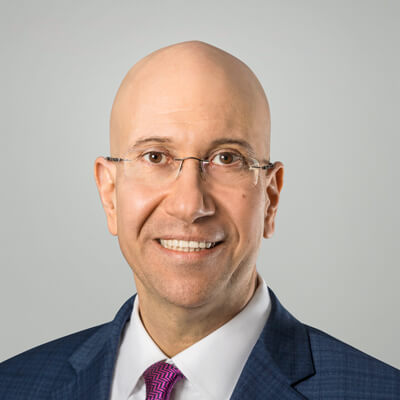Coffee & Cap
Rates Podcast
2/16/2023: Episode 68:
Host
Shimon Shkury
President and Founder
Guest
Sean R. Kelly, Esq.
Partner
Guest
Stephen Vorvolakos
Director - Investment Sales
HOST

Shimon Shkury
President and Founder
GUEST

Sean R. Kelly, Esq.
Partner
GUEST

Stephen Vorvolakos
Director - Investment Sales
*The following text has been automatically transcribed and may contain minor errors. For original content, listen to the podcast episode
Shimon Shkury: Hi everyone, I'm Shimon Shkury with Ariel Property Advisors here with Coffee and Cap Rates our podcast, today talking about Brooklyn and I'm excited to tell you that we have Sean Kelly, my partner here with us, as well as Stephen Vorvolakos, our Director in Investment Sales and works very closely with Sean. Hi guys, how are you doing?
Sean R. Kelly, Esq. and Stephen Vorvolakos: Hey, Shimon. Thanks for having us on.
Shimon Shkury: Thank you for being here. And we've had an observation this year. Brooklyn has done close to half of all New York City's transactions, close to half of the 2,700 transactions. That's huge. The borough is really rapidly growing, has grown a lot since we've known in the past 20 years. How is the overall market performing? Or actually let's jump into each one of the product types. Why don't we talk a little bit about development. Sean, what do we see in development in Brooklyn?
Sean R. Kelly, Esq.: So the development market remained really strong in Brooklyn. We had roughly 1.6 billion dollars in transactions. Most of these transactions were really focused on projects that would allow a developer to build rental housing. There's no surprise, we talk about it all day every day that there's a perpetual shortage of housing, rents are up and the increase in rents has kind of offset the increase in labor and material costs. So pricing has remained pretty stable.
Shimon Shkury: And in addition to that, the interest rates went up and we know that throughout the city the second half of the year was not as great as the first half because of interest rates. And so you're correct, I mean, we're saying that the growth in rental is compensating the expense side and what you said is key, the perpetual low supply of housing. Now we know that the 421-a, the tax abatement was taken away from developers in the middle of the year and a lot of the development in Brooklyn is rental. How do you think that affects the Brooklyn market, how it'll affect the Brooklyn market moving forward? What do you see there, Sean?
Sean R. Kelly, Esq.: So there's going to be a mad dash I think in the first half of the year for people who had sites entitled with 421-a to either get the construction financing completed or to sell those assets so that somebody else can get comfortable with the deadline that we have coming, right. As of right now, without an extension on the 421-a affordable New York tax abatement, people are going to have to get a TCO by June of 2027. So it leaves them three years. It's very, very difficult for the larger projects. It's achievable for the smaller to mid-size stuff. So I think there's going to be a lot of transactional volume in the capital markets financing the construction for the rental projects and we'll see some sales as well. We're actually just hitting the market with a site in the Gowanus that's going to allow for about 140 units.
Shimon Shkury: Yes, and I think that's accurate. Going towards developing or selling is exactly what we're seeing throughout the city. Although the governor is telling us she's trying to extend that deadline four years, which is great. It's helpful, but still I think that your prediction is right. And Stephen, our director in investment sales together with Sean there, what are you seeing with multifamily in general throughout Brooklyn and specifically on the smaller stuff as well?
Stephen Vorvolakos: Sure, yeah. So what we've seen is really that the multifamily market is what helped propel Brooklyn to this record breaking year. We’ve seen rents and vacancy really get back to and surpass pre pandemic levels and as a result, the 807 transactions that we saw this year was the highest ever on record. So it's about a 30% increase from 2021. And really that's what's propelling Brooklyn. I think It's not just large institutional transactions. A lot of it is pushed on the smaller side. 93% of the multifamily sales traded for 10 million or less. We're seeing institutional money enter into this space. And the reason is really ever since HSTPA, we've seen a push away from rent-stabilized and more of a focus in investor appetite in smaller five units or less mixed-use properties where they don't have to deal with stabilization. Profit margins are shrinking in that asset class and the headaches that deal with managing properties like that have increased exponentially. So people are trying to avoid that if they can. They're looking mainly for properties that still have avenues to add value. Our team specifically has had a tremendous amount of success with properties like that. We recently sold a building in Park Slope as a fully free market building. We put another one into contract in Brooklyn Heights and those listings we get like 20 to 30 offers right off the bat. I mean the appetite is there and it's not something that I see slowing down anytime soon on unless laws change.
Shimon Shkury: That's fantastic and very, very insightful. Thank you for that. So basically what you're saying is people are looking for simplicity after the guidelines, the ages, DPA, 10 units and under, class A and B, as well as excuse just simpler buildings that are somewhat tax class protected. You're talking about private clients, which is great, means that they're here to stay. We do know that there are some institutions that are trying to build portfolios out of these As and Bs as long as they're simple enough and predominantly free market. That's really, really true and and really what what you're seeing in these very rapidly changing neighborhoods. So thank you for that Stephen. And Sean, we're talking about the smaller buildings, but also we've seen throughout the sea that the free market world in multifamily has done really well. 76% of all transactions were free market buildings and Brooklyn took its fair share. What do we see under the larger multifamily transactions? What have we seen in 2022?
Sean R. Kelly, Esq.: Sure. So we talk about this also. Historically, people look at New York City as a safe haven for capital, right? It's a safe haven for investment. Brooklyn and particularly the multifamily asset class gets treated similarly, right? It's a very safe asset class. What's interesting is we've seen a lot of acquisitions of these, what we call expiring 421-a buildings and to the point that Stephen made, this is where somebody can add value because they have expiring buildings. Those units will on turn become deregulated. So there's a lot of capital, institutional mostly, chasing those larger quality and expiring 421-a buildings.
Shimon Shkury: That's great. And what's interesting about Brooklyn today versus let's say 15, 20 years ago, it's become more institutionalized. Institutional capital is looking in Brooklyn, institutional capital in general is looking in New York City and what you just mentioned about the bigger buildings with 421-a provides a real opportunity for institutional capital to invest, be safe and feel comfortable with it. Brooklyn is exciting. I think you guys and the rest of our team are doing fantastic there. And is there anything else you want to add or, can we wrap this up?
Sean R. Kelly, Esq.: I would say look out for quality development sites that you can buy in solid markets near transportation. I think there's gonna be a bunch of stuff on the market in the first half of the year.
Shimon Shkury: Sean Kelly, my partner and Stephen V., our director, thank you so much for joining us. I appreciate it. And thank you for listening.
Sean R. Kelly, Esq.: Thanks, Shimon.
Stephen Vorvolakos: Thanks so much, Shimon.
